Tribune Take: Technology trends that will shape 2020
A glimpse into the world of technology after a year in which the public's mood towards the industry grew distrustful
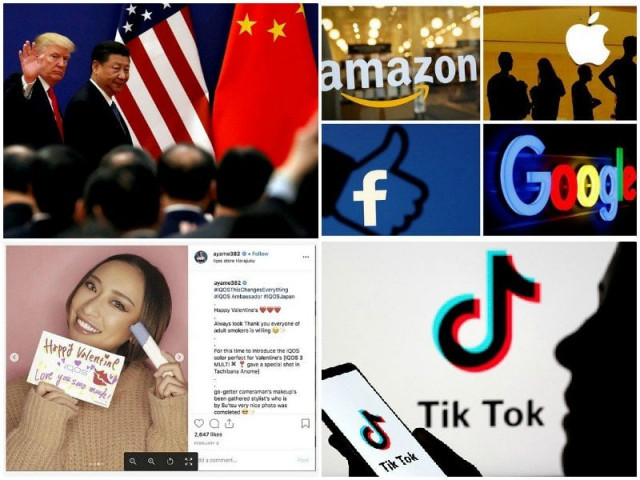
PHOTO: FILE
We look at the top tech trend shaping the world of technology after a year in which the public's mood towards the industry grew more distrustful.
5G's unfulfilled promise
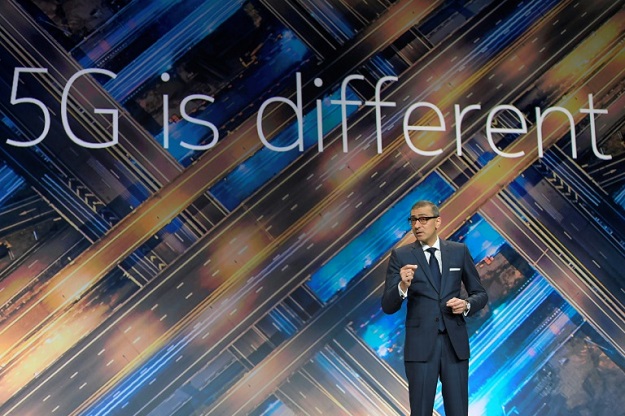 And it may even be ready in 2020. PHOTO: AFP
And it may even be ready in 2020. PHOTO: AFPSuper-fast fifth-generation network speeds are meant to revolutionize communications along with areas like urban transport -- driverless cars plying our streets safely could finally become reality.
But so far, 5G has failed to meet expectations due to the lagging build of infrastructure in many places. Apple has yet to launch a compatible phone, unlike rivals including Samsung.
The rollout should quicken next year as more countries install base stations and networking equipment -- although US President Donald Trump's war on Chinese sector leader Huawei remains a wild card.
As smartphone sales plateau around the world, manufacturers have been focussing more on ancillary services.
"You have to sell the entire experience, the entire ecosystem," Dominique Bindels, senior analyst for home and tech with London-based research firm Euromonitor International, told AFP.
Highlighting Apple's success in payments and peripheral devices such as AirPods, Bindels predicted that smart earphones, along with speakers and at-home devices connected on the "internet of things", would be among the more dynamic sectors in 2020.
Another trend could be consolidation in TV streaming after Apple and Disney joined Netflix, Amazon Video and some national broadcasters in a crowded subscription market.
Leap into the quantum dark
 A Sycamore chip mounted on the printed circuit board during the packaging process. PHOTO: AFP
A Sycamore chip mounted on the printed circuit board during the packaging process. PHOTO: AFPFor the industry at large, business consultancy Accenture this year coined the acronym DARQ to denote four major trends: distributed ledger technology (such as blockchain), artificial intelligence (AI), extended reality and quantum computing.
Unbreakable blockchain networks of computers have already been generating virtual currencies in the form of bitcoin and its ilk, bypassing the need for a regulator like a government or central bank.
Facebook wants to make the tech respectable through its "Libra" project but has hit political opposition around the world, and several financial partners have pulled out.
Unwilling to let private enterprise dictate terms, China and other nations are building their own digital payments systems, which could see fruition next year.
However, blockchain networks devour huge amounts of energy, and concerns will mount about their environmental impact as debate intensifies more broadly about tech's contribution to climate change.
The price of privacy
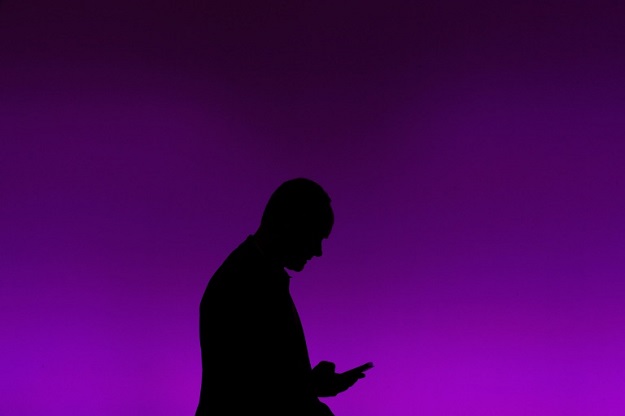 Privacy is 'just another currency'. PHOTO: AFP
Privacy is 'just another currency'. PHOTO: AFPMost companies are now actively engaged across the spectrum of another tech acronym, SMAC: social, mobile, analytics and cloud. For consumers, SMAC is felt in how we communicate with friends and how we search and shop.
That is accentuating fears about privacy, after a series of data leaks at Facebook laid bare how much of our online lives are exploited by companies and political parties.
Instagram working on a Snapchat clone yet again
One recent revelation showed that Google is mining the medical data of millions of people, in a bid to access what observers think will be the next frontier of growth in tech -- healthcare.
"People are becoming more conscious of sharing data but also in the same moment, the Nest cameras and smart speakers are flying off the shelves," said Bindels.
"There's a huge divide. People have been learning to trade privacy for convenience. It's just another currency."
For Amnesty International, in a hard-hitting study last month into Facebook and Google, that tradeoff amounts to a "Faustian bargain" which imperils our human rights.
Tech wars
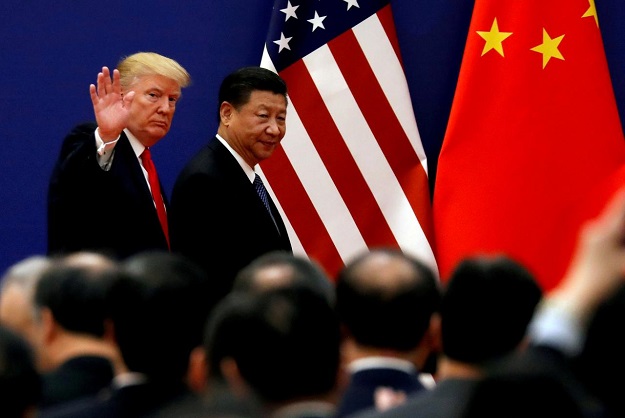 PHOTO: REUTERS
PHOTO: REUTERSTo Beijing's anger, Washington alleges that Huawei and another telecoms group, ZTE, are little more than shell fronts for Chinese spy chiefs.
Ni Lexiong, professor at the Shanghai National Defense Strategy Institute, said US tech sanctions would only encourage China to stand on its own feet.
"In the end, once China has formed its own industrial chain in the field of artificial intelligence, the United States will also lose a large market," he said.
Samm Sacks, an expert on China's digital economy at the Washington think tank New America, said the tech standoff could harm progress in areas such as precision medicine and AI-based diagnoses.
The two countries have cooperated in research, "and severing that could have global consequences", she warned.
Taxing times
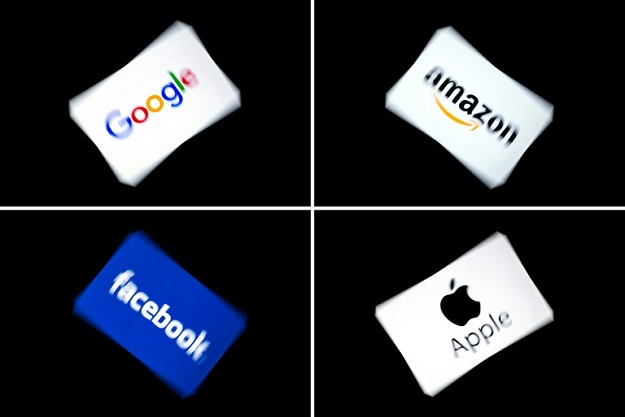 Tax 'em more? Break 'em up? The debate won't end in 2020. PHOTO: AFP
Tax 'em more? Break 'em up? The debate won't end in 2020. PHOTO: AFPThe US presidential election next November will likely prove another flashpoint over disinformation peddled on social media.
Democratic hopeful Elizabeth Warren wants Amazon, Facebook and Google to be broken up on anti-trust grounds.
The Organisation for Economic Co-operation and Development is meanwhile due by June 2020 to present a "unified approach" for richer countries to levy a digital tax on internet giants.
Some like France have gone ahead with their own tax, igniting another potential front in Trump's multifaceted trade wars as the US threatens tariffs on a range of French goods.
The winds of change for social media influencers
 PHOTO: REUTERS
PHOTO: REUTERSSocial media influencers have the ability to sell your product to a vast audience due to which they are charging a hefty price as well.
Instagram recently banned sponsorship content for weight loss products as it has a negative impact on society. There were three influencer’s posts that had been banned by the Advertising Standards Authority, labeling them ‘irresponsible’.
YouTube content creators benefited the most from this marketplace with a sponsored content price of $420 in 2014 to $6,700 in 2019 while Twitter posts have risen from $29 in 2014 to $422 in 2019 and single Facebook status update has risen from $8 in 2014 to $395 in 2019.
Instagram defect wins Chennai-based security researcher $10,000
Competition and Markets Authority has issued warning that influencers would be breaking consumer law if they do not make it clear when they advertise a product or brand.
Furthermore, the research suggests that influencer-sponsored posts spiked by 150% in the last year, with double the use of the hashtag #ad.
Brands are willing to increase their spending on influencer marketing in 2020, making it a $10 billion industry.
TikTok will outshine other social media platforms.
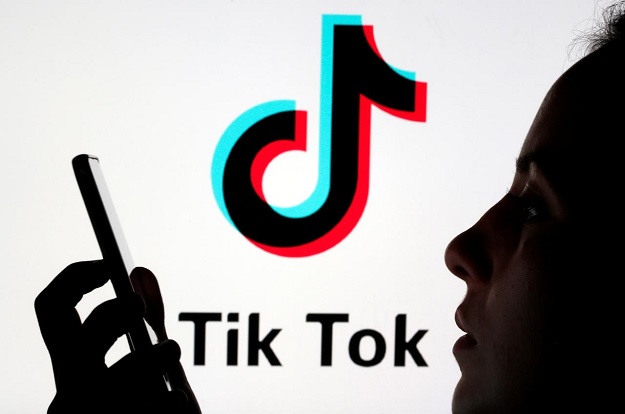 PHOTO: REUTERS
PHOTO: REUTERSTikTok allows users to upload short videos with special effects, many of whom dance, jump and lip-sync to pop songs and music in the app. The app also offers easy-to-use editing tools, so users can simply edit the videos via their cellphones.
It is one of the world’s most popular apps with more than 1 billion downloads globally, according to analytics firm Sensor Tower, becoming the first Chinese-developed consumer app to achieve an international scale.
The app has especially created a buzz among US teenagers. Around 60% of its 26.5 million monthly active users there are aged between 16 and 24, the company said earlier this year.
TikTok was in the news for allegedly being used by the Chinese government to censor politically sensitive content.



















COMMENTS
Comments are moderated and generally will be posted if they are on-topic and not abusive.
For more information, please see our Comments FAQ